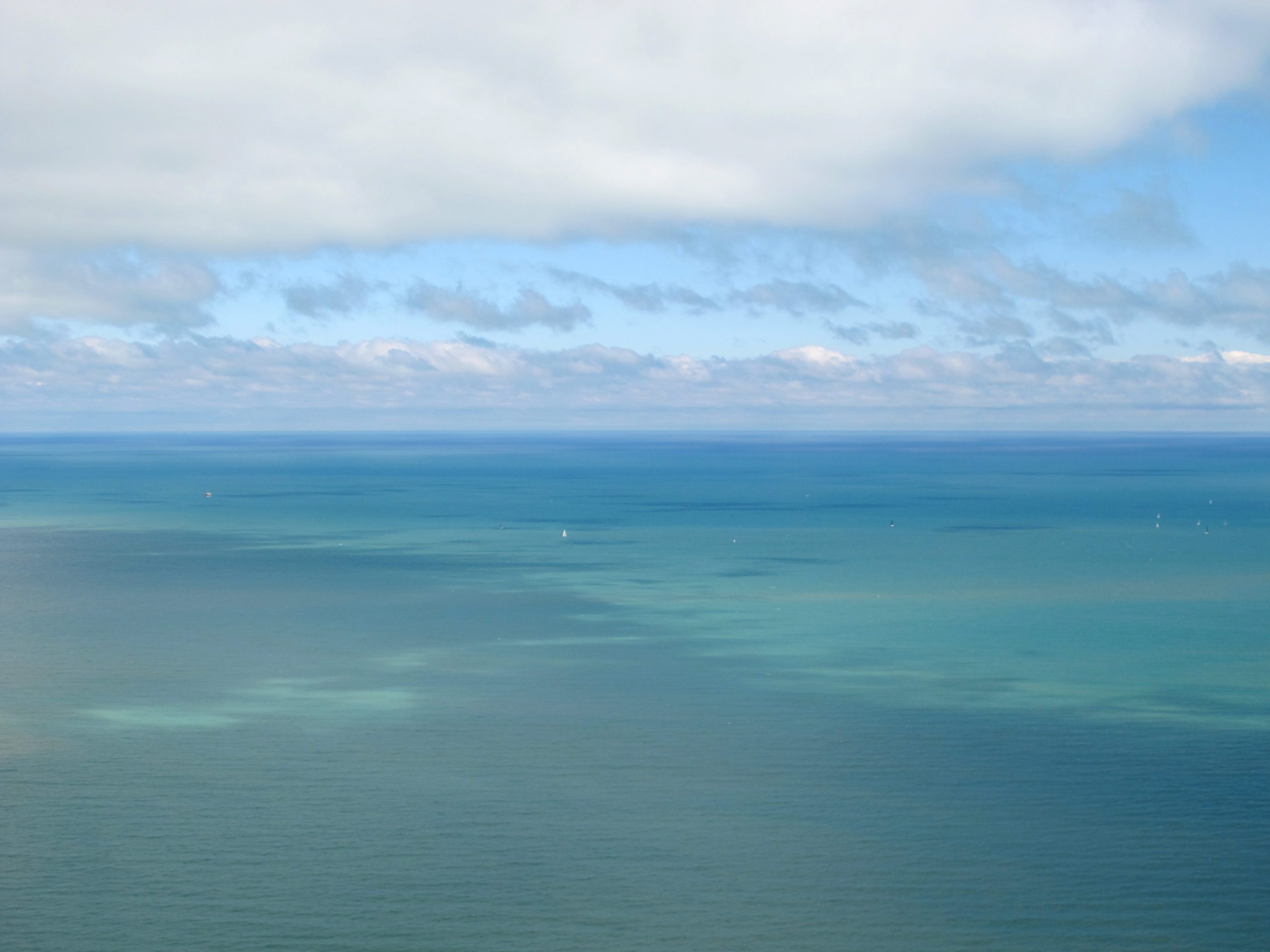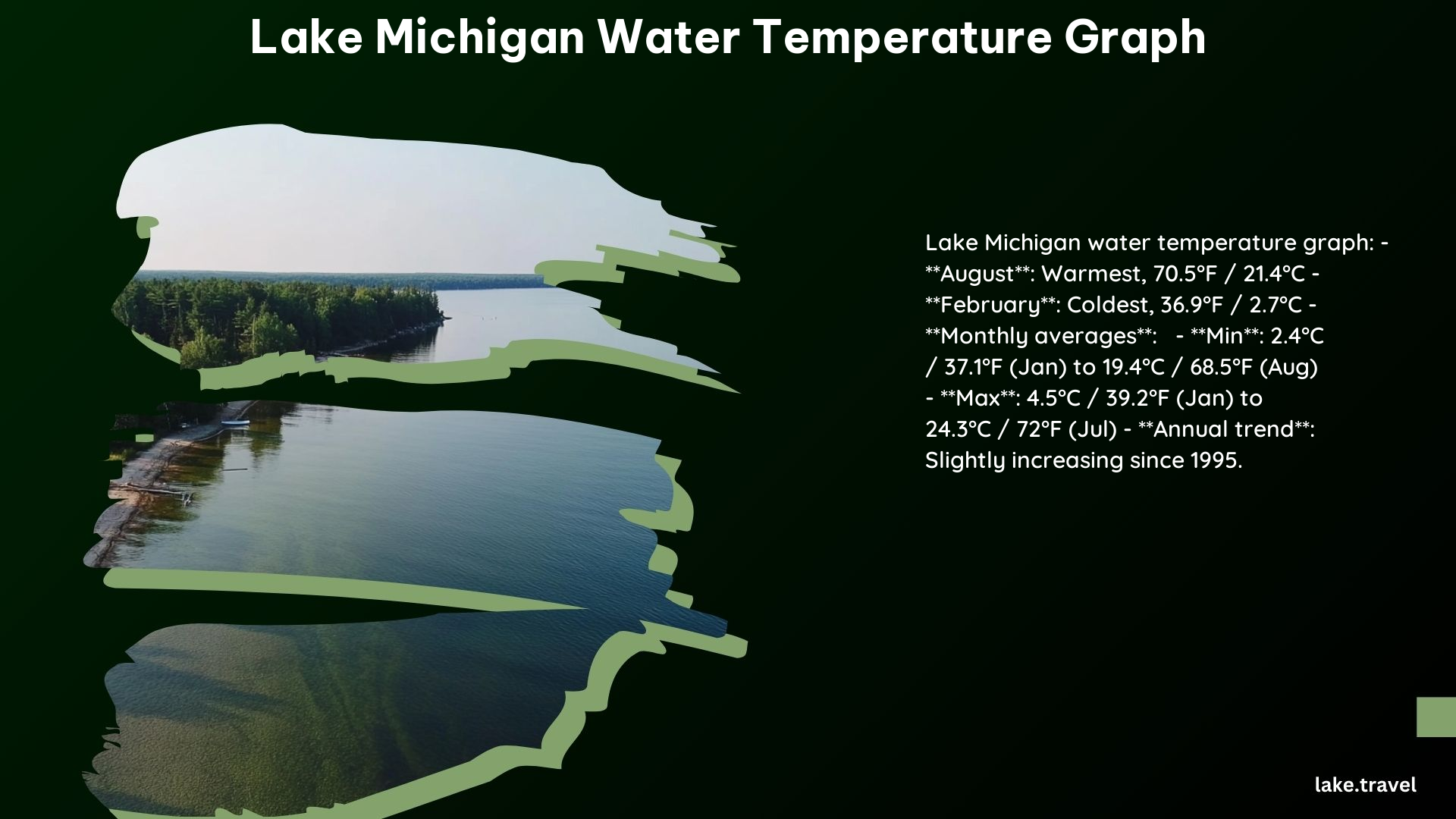Lake Michigan’s water temperature is a crucial factor for anyone planning activities on the lake, from swimming and boating to fishing and other water sports. Understanding the seasonal fluctuations and trends in water temperature can help you make the most of your time on the lake. In this comprehensive guide, we’ll dive into the details of the Lake Michigan Water Temperature Graph, providing you with the information you need to plan your next lakeside adventure.
Understanding the Lake Michigan Water Temperature Graph

The Lake Michigan Water Temperature Graph is a visual representation of the average water temperature in the lake throughout the year. This graph provides valuable insights into the seasonal changes and temperature patterns, allowing you to plan your activities accordingly.
Warmest and Coldest Months
According to the data, the warmest month in Lake Michigan is August, with an average water temperature of 70.5°F (21.4°C). In contrast, the coldest month is February, with an average water temperature of 36.9°F (2.7°C).
Current Water Temperature
As of August 10, 2024, the current water temperature in Lake Michigan is around 62.6°F (17.0°C).
Monthly Average Max/Min Water Temperatures
To give you a more detailed understanding of the water temperature fluctuations, here’s a table outlining the monthly average maximum and minimum water temperatures:
| Month | Minimum Temperature | Maximum Temperature |
|---|---|---|
| January | 37.1°F (2.4°C) | 39.2°F (4.5°C) |
| February | 35.6°F (1.4°C) | 38.2°F (4°C) |
| March | 35.4°F (1.2°C) | 38.4°F (4.2°C) |
| April | 36.8°F (2.1°C) | 39.5°F (4.8°C) |
| May | 37.9°F (2.1°C) | 43.2°F (7.4°C) |
| June | 45.9°F (4.9°C) | 58.8°F (17.8°C) |
| July | 62.6°F (14.9°C) | 72°F (24.3°C) |
| August | 68.5°F (19.4°C) | 72.6°F (23.5°C) |
| September | 63.5°F (16.1°C) | 70°F (22.6°C) |
| October | 51.1°F (9°C) | 58.4°F (16.3°C) |
| November | 43.1°F (4.6°C) | 50.2°F (11.7°C) |
| December | 37.4°F (1.7°C) | 43.3°F (7.6°C) |
Factors Influencing Lake Michigan Water Temperature

The water temperature in Lake Michigan is influenced by a variety of factors, including:
- Seasonal Changes: The most significant factor is the seasonal changes in air temperature, which directly impact the water temperature.
- Depth and Currents: The depth of the lake and the movement of currents can also affect the water temperature, with deeper areas and areas with stronger currents generally experiencing cooler temperatures.
- Weather Patterns: Factors like cloud cover, wind, and precipitation can also influence the water temperature, causing short-term fluctuations.
- Global Climate Trends: Long-term changes in global climate patterns, such as the effects of climate change, can also impact the overall water temperature trends in Lake Michigan.
Implications for Lakes Touring Enthusiasts
Understanding the Lake Michigan Water Temperature Graph has several implications for lakes touring enthusiasts:
- Activity Planning: Knowing the water temperature patterns can help you plan your activities on the lake more effectively. For example, the warmest months (July and August) are ideal for swimming, while the cooler months may be better suited for activities like fishing or boating.
- Comfort and Safety: Awareness of the water temperature can also help you prepare for your time on the lake, ensuring you have the appropriate clothing and gear to stay comfortable and safe.
- Ecological Considerations: The water temperature can also impact the local ecosystem, affecting the distribution and behavior of aquatic life. As a lakes touring enthusiast, being mindful of these ecological factors can help you appreciate and preserve the natural beauty of Lake Michigan.
Conclusion
The Lake Michigan Water Temperature Graph is a valuable tool for anyone planning to explore the lake. By understanding the seasonal fluctuations and trends in water temperature, you can make informed decisions about your activities, ensure your comfort and safety, and appreciate the delicate balance of the lake’s ecosystem. Whether you’re a seasoned lakes touring enthusiast or a newcomer to the area, this guide will help you make the most of your time on the beautiful waters of Lake Michigan.
References:
– https://coastwatch.glerl.noaa.gov/statistics/
– https://lre-wm.usace.army.mil/ForecastData/TrendGraphics/MIC_mon_ann_watertmp.pdf
– https://coastwatch.glerl.noaa.gov/statistics/average-surface-water-temperature-glsea/
– https://www.epa.gov/sites/default/files/2016-08/documents/print_great-lakes-2016.pdf
– https://www.seatemperature.org/north-america/united-states/lake-michigan.htm
